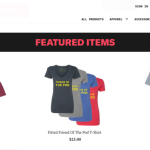Your Biggest Client Just Dumped You–Now What?
Joel wasn’t surprised when he got the call. Actually, he appreciated that it was a call, not an email, telling him he’d lost the account.
“Joel, I’m sure you know that with our company’s reorganization, we’ve been directed to consolidate the number of suppliers to only a few who meet the new corporate standards,” Renee said plainly. “You know how much my team and I have enjoyed working with you. You’ve done great work, but this decision is out of our hands.”
Joel’s situation is all too familiar to freelancers and small- to medium-sized firms that contract with big clients. Try as you might to diversity, there are simply times when the bulk of your revenue comes from that one huge client. When it walks out, everything goes out of whack—it can be terrifying. But there are ways to ease the emotional and financial trauma and get back on your feet in short order.
“Wait, Was It Me?”
If you’ve lost your “monster client,” you might be wondering what happened—what you did wrong. The first step to getting back on your feet, though, is not to be too hard on yourself. In my experience, once we’ve landed a big client, our work tends to lose some of its individuality and joy—the things that made us creative and different from every other provider. Big corporate clients tend to rely on stability and predictability, and as their supplier, we’re apt to adopt that thinking. So remind yourself that this could be something of a blessing in disguise.
You also might be left wondering whether your efforts were appreciated. It’s normal to feel personally affronted when a client dumps you, but it’s possible—even vital—to move beyond the self-recrimination and try to make rational sense of what happened. As things unwind, be mindful not to do anything that could endanger positive relations with the soon-to-be-former client.
Don’t burn bridges. Instead, try to focus inward. Focus on changing your perspective about the relationship, and look at the opportunities your new freedom offers you. So your first step is to reframe the loss in a way that respects both sides and maximizes your excitement about your future—at a time when you may be understandably worried about it.
First, analyze the good things you learned from your work for the client and make a note of why the account was lost—no whining, just the facts as best you know them. Then try and visualize a future in which you have more control over your professional destiny, while delivering significant results for new clients.
Whether you’re informing your team or just giving yourself a pep talk, make sure you review how your unique combination of talents and experiences can still deliver value to clients that others can’t. As you think back about this recently sundered relationship, don’t forget to remind yourself of others—your track record is likely full of big wins, too, and you can use that experience to delight and inspire new clients in the future. In fact, you’ll need it to.
Planning For Next Time
It can be tempting to skip over this type of self-reflection and scramble to pick up new business quickly. But it’s important to use the experience to guide your decisions going forward. Before you take on any new clients—no matter how urgently you need to—consider how you can avoid another big blow like this in the future.
First, avoid the commoditization trap. Within every industry, competition arises between firms and solo contractors that clients see as doing essentially the same thing. From a client’s point of view, those contractors may seem more interchangeable than you’d like. Dig deeper to find your own unique combination of talents—the stuff that will make a client think twice before swapping you out for a competitor. That’s what will make you irreplaceable.
Second, prepare for losses in the future, even while you’re still hurting from this one. You will lose clients—that’s just reality. Always stay equipped to survive by having a Plan B. If you didn’t have one on hand this time, draw one up. There’s no time like a crisis to plan for the next emergency. Going forward, you’ll want to make new business development a daily practice, even if you’re a solo practitioner and have limited networking time. Always keeping an iron or two in the fire is essential.
The First Week Of Fallout
In the immediate aftermath of a big client loss, it’s important to manage your emotional response. Getting that goodbye phone call or email will hit you hard, even if you’re prepared for it.
Psychologists know that, thanks to the principle of “loss aversion,” we’ll do almost anything to avoid losing something because that experience is more painful than an equivalent gain would be rewarding. In fact, winning an even better client won’t wipe out your pain from a loss right away.
Then there’s the personal side. In my experience, the client contact always distances themselves in spite of a long and successful working relationship. But it’s important to understand that their decision usually isn’t personal. Your client’s corporate environment may simply be focused on the bottom line, and your personal contact at the company is probably as focused on their own professional advancement as you are.
Coming to grips with both of these realities within the first week or two of getting ditched can be difficult, but it’s essential. Know that you’re going to feel upset and anxious, but if you allow yourself to lick your wounds too much, it’ll be harder to figure out what steps you need to make to shore up your business.
Later On
To do that, you have to use this experience to your advantage, not shut it from your mind. Chances are the rest of the world doesn’t know you just lost your biggest client. And even if they do, a corporate reorg that leaves you out won’t matter to most future prospects. Yes, you lose a big chunk of revenue when a major client ends its contract, but the fact that you made it happen in the first place is a credential that can still add polish to your reputation.
Next, redirect your efforts toward what you do best. That’s especially true if the client you’ve lost was a big corporation. Working with a corporate client often doesn’t fit the level of experimentation and risk that freelancers and smaller firms thrive on. Once the initial rush of winning a prestigious account wears off, creative minds can feel encumbered by tight corporate guidelines. The money may feel great, but enthusiasm for the work can wane.
As you look for new work, keep in mind that it’s all about fit. Interview prospective clients thoroughly—even more thoroughly than you’re used to. Look for entrepreneurial personalities that value what you do best. Consider emerging market segments where opportunity for creating something new is a requirement, not just a nice bonus. And don’t shy away from sectors you haven’t explored yet. In fact, losing a major client can be a great time to rethink your strategy.
And finally, as much as possible, only take on work that excites you. You’re not right for every client, but you’re just right for a brave few. Your passion for working with those few will create success in ways money never will.
Ted Leonhardt is a designer and illustrator, and former global creative director of FITCH Worldwide. His specialized approach to negotiation helps creative workers build on their strengths and own their value in the marketplace. Follow Ted on Twitter at @tedleonhardt.
Fast Company , Read Full Story
(20)














